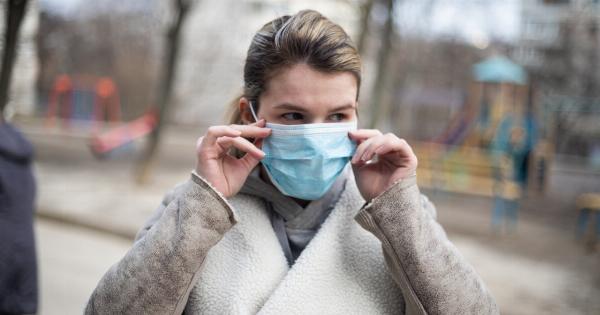The seasonal flu is a type of respiratory illness caused by influenza viruses. It typically occurs in the fall and winter months and can cause a range of symptoms, including fever, cough, sore throat, and body aches.
While the seasonal flu is usually not life-threatening, it can be dangerous for certain populations, such as young children, older adults, pregnant women, and people with weakened immune systems.
How Does the Flu Spread?
The flu spreads through respiratory droplets when an infected person coughs, sneezes, or talks. These droplets can land in the mouths or noses of people nearby or be inhaled into the lungs.
The virus can also spread by touching a surface contaminated with the flu virus and then touching your mouth, nose, or eyes.
What Can You Do to Protect Yourself from the Flu?
There are several ways to protect yourself from the flu:.
1. Get a Flu Shot
The most effective way to protect yourself from the flu is by getting a flu shot every year. The flu vaccine is a safe and effective way to prevent the flu and reduce the severity of symptoms if you do get sick.
The Centers for Disease Control and Prevention (CDC) recommends that everyone over the age of 6 months get a flu shot every year. It is especially important for people at higher risk for complications from the flu, such as young children, older adults, pregnant women, and people with certain health conditions.
2. Wash Your Hands Frequently
Washing your hands frequently is one of the best ways to prevent the spread of the flu. Use soap and water and wash your hands for at least 20 seconds. If soap and water are not available, use an alcohol-based hand sanitizer.
3. Avoid Close Contact with Sick People
Avoiding close contact with sick people can help prevent the spread of the flu. If you or someone in your household is sick with the flu, it is important to stay home and avoid contact with others as much as possible.
4. Cover Your Mouth and Nose
When you cough or sneeze, cover your mouth and nose with a tissue or your sleeve. This can help prevent the spread of respiratory droplets that can carry the flu virus.
5. Clean and Disinfect Surfaces
Cleaning and disinfecting surfaces that may be contaminated with the flu virus can help prevent the spread of the flu. Use a disinfectant that is effective against the flu virus and follow the manufacturer’s instructions for use.
What Should You Do If You Get the Flu?
If you do get the flu, it is important to take steps to reduce the severity of symptoms and prevent the spread of the virus:.
1. Stay Home
If you have the flu, it is important to stay home and avoid contact with others as much as possible. This can help prevent the spread of the virus to others.
2. Rest and Drink Fluids
Resting and drinking plenty of fluids can help reduce the severity of symptoms and speed up recovery from the flu.
3. Take Medications as Directed
Over-the-counter medications can help relieve flu symptoms, such as fever, cough, and sore throat. It is important to follow the directions on the label and talk to your healthcare provider before taking any new medications.
4. Seek Medical Attention If Necessary
If you have severe flu symptoms or are at higher risk for complications from the flu, such as young children, older adults, pregnant women, and people with certain health conditions, it is important to seek medical attention.
Your healthcare provider can provide treatment and monitor your condition to ensure a full recovery.
Conclusion
The seasonal flu can be a serious illness, but there are steps you can take to protect yourself and others.
Getting a flu shot, washing your hands frequently, avoiding close contact with sick people, covering your mouth and nose, and cleaning and disinfecting surfaces can all help prevent the spread of the flu. If you do get the flu, staying home, resting, and seeking medical attention if necessary can help reduce the severity of symptoms and ensure a full recovery.



























